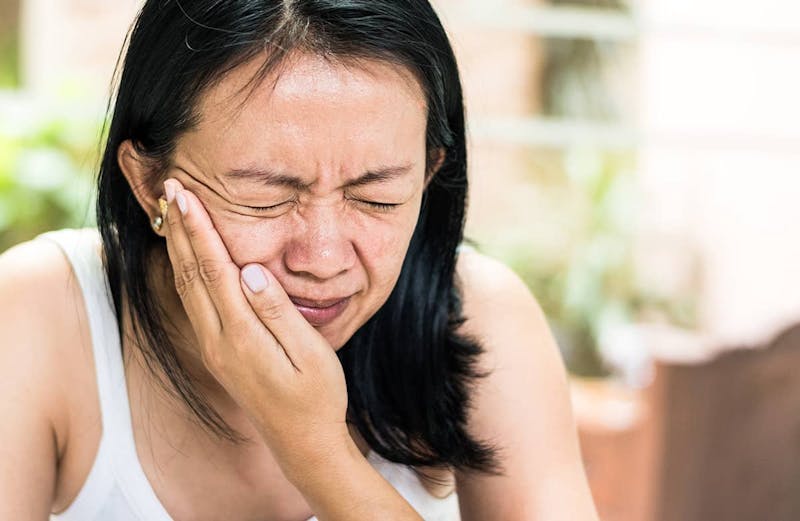
Do you know the difference between Bell’s Palsy and Ramsay Hunt Syndrome? Both conditions involve facial paralysis, but they have different causes and treatment options. Bell’s Palsy is a type of facial nerve palsy that results in sudden, unilateral facial weakness. Ramsay Hunt Syndrome is caused by a virus and can cause facial nerve damage, as well as other symptoms such as hearing loss or pain in the ear.
Knowing the differences between these two conditions is important for proper diagnosis and treatment. Understanding Bell’s Palsy vs. Ramsay Hunt will help you make informed decisions about your healthcare needs.
What is Bell’s Palsy?
Bell’s Palsy is a type of facial nerve palsy that results in sudden, unilateral facial weakness. It is caused by damage to the seventh cranial nerve, which controls the muscles on one side of the face. Symptoms of Bell’s Palsy include drooping eyelids, difficulty closing or opening the eye, decreased ability to taste and/or smell, and difficulty making facial expressions.
In some cases, people may also experience pain behind their ears or around their jaw. Treatment for Bell’s Palsy typically includes medications such as corticosteroids and antiviral drugs to reduce inflammation and help speed up recovery. Physical therapy can also be used to help strengthen weakened muscles and improve facial symmetry.
What is Ramsay Hunt Syndrome?
Ramsay Hunt Syndrome is a type of facial nerve palsy caused by the shingles virus or chickenpox virus. It is characterized by facial muscle weakness, ear pain, and sometimes hearing loss. The virus affects the nerve fibers that control the muscles on one side of the face, as well as nearby nerves. Symptoms of Ramsay Hunt Syndrome include drooping eyelids, difficulty closing or opening the eye, decreased ability to taste and/or smell, and difficulty making facial expressions. In some cases, people may also experience pain behind their ears or around their jaw.
The shingles virus spread through contact with an active shingles outbreak or through contact with someone who has had chickenpox in the past. Treatment for Ramsay Hunt Syndrome typically includes antiviral medications to reduce inflammation and help speed up recovery. In some cases, surgery may be necessary to repair damaged nerves or remove scar tissue from a shingles outbreak.
Common Symptoms of Bells Palsy and Ramsay Hunt
The common symptoms of Bell’s Palsy and Ramsay Hunt Syndrome are similar in that they both involve facial paralysis. However, there are some differences between the two conditions. Bell’s Palsy is caused by damage to the seventh cranial nerve, while Ramsay Hunt Syndrome is caused by the varicella-zoster virus.
The onset of symptoms for both conditions tend to be sudden and unilateral, meaning only one side of the face shows the condition. Symptoms may include drooping eyelids, difficulty closing or opening the eye, decreased ability to taste and/or smell, and difficulty making facial expressions. In some cases, people may also experience pain behind their ears or around their jaw. Blood tests may be used to diagnose Ramsay Hunt Syndrome as it is caused by a virus.
Additional symptoms associated with Ramsay Hunt Syndrome include hearing loss or facial pains due to inflammation of the temporal bone near the ear. Treatment for both conditions typically includes medications such as corticosteroids and antiviral drugs to reduce inflammation and help speed up recovery. Physical therapy helps strengthen weakened muscles and improve facial symmetry.
Diagnosing Bell’s Palsy vs. Ramsay Hunt Syndrome
When diagnosing Bell’s Palsy and Ramsay Hunt Syndrome, a healthcare provider will typically assess the patient’s symptoms and medical history. In the vast majority of cases, Bell’s Palsy causes facial nerve paralysis. However, in some cases, Ramsay Hunt is the cause. To diagnose Ramsay Hunt Syndrome, a healthcare provider may order blood tests to look for the causative virus.
In addition to assessing symptoms and medical history, a healthcare provider may also perform physical examinations such as an electromyography (EMG) or magnetic resonance imaging (MRI) to determine if there is damage to the facial nerve cells. An EMG measures electrical activity in muscles while an MRI provides detailed images of the brain and other structures in the body. Depending on the results of these tests, a healthcare provider may recommend antiviral medications or physical therapy to help reduce inflammation and improve facial symmetry. In some cases, surgery may be necessary to repair damaged nerves or remove scar tissue from a shingles outbreak.

Treatment Options for Each Condition
Treatment options for Bell’s Palsy and Ramsay Hunt vary depending on the severity of the condition. For mild cases of Bell’s Palsy, treatment may include pain medications, facial exercises, and physical therapy to help strengthen weakened muscles. In more severe cases, your doctor will recommend corticosteroids to reduce inflammation and speed up recovery. Additionally, antiviral medications treat any underlying virus that is causing facial paralysis.
For Ramsay Hunt Syndrome, treatment typically includes antiviral medications such as acyclovir or valacyclovir to reduce inflammation and speed up recovery. Additionally, a chickenpox vaccine or shingles vaccine may be recommended for people who have not been vaccinated against the varicella-zoster virus (VZV). Vaccination can help prevent permanent damage from VZV-related conditions such as Ramsay Hunt Syndrome. Physical therapy also helps strengthen weakened muscles and improve facial symmetry. In some cases, surgery such as facial nerve decompression may be necessary to repair damaged nerves or remove scar tissue from a shingles outbreak.
Overall, it is important for individuals with either condition to seek medical attention in order to receive an accurate diagnosis and appropriate treatment. With the right care, most people with Bell’s Palsy or Ramsay Hunt Syndrome can make a full recovery.
Risk Factors of Ramsay Hunt and Bell’s Palsy
1. Viral infection
One of the most common risk factors associated with Bell’s Palsy and Ramsay Hunt Syndrome is a viral infection, usually caused by the herpes simplex virus (HSV). The virus is present in many of us, however, under certain conditions, it can become active and cause paralysis. This risk factor is the most common of all the others and requires early medical intervention to reduce damage to the facial nerve.
2. Diabetes
High blood sugar levels can cause damage to your body tissues including those in your face which increases your chance of developing Ramsay Hunt or Bell’s Palsy as a result.
3. Immune system problems
Some people have a predisposition to autoimmune diseases like multiple sclerosis and lupus which can trigger an attack on their own body cells including those in their face that can lead to Bell’s Palsy or Ramsay Hunt Syndrome. Therefore, if you experience such an autoimmune disease, then it is important for you to manage it with proper treatment so as to avoid these complications from occurring.
4. Inflammation/Infection
Inflammation around your inner ear or throat can increase your chances of developing either one of these conditions, again caused by a combination of viruses and bacteria that may reside there. This inflammation may be due to allergies or even dehydration so monitoring your overall health and supplementing any nutrients where necessary will help reduce the risk significantly.
5. Trauma/Stress
Any physical trauma that occurs close to the ear canal or throat can cause swelling thus leading to either condition discussed here. Stress can also play a role as high cortisol levels have a direct effect on this area and weaken nerve function making us more susceptible to attack from outside sources such as bacteria or viruses mentioned above. Reducing stress in our lives should therefore be a priority if we want optimum facial nerve protection against these conditions.
6. Genetics
This factor carries less weight than others listed here but genetic predisposition cannot be ruled out completely when assessing for various causes that could explain why some individuals are more likely than others to experience such tissue damage in their facial area. This will lead eventually to Ramsay Hunt Syndrome or Bell’s Palsy. Your health provider should monitor carefully if there is concern about hereditary elements at play.
7. Age & Gender
Age and gender can also be risk factors for Bell’s Palsy and Ramsay Hunt Syndrome. Generally, these conditions are more common in adults between the ages of 40 and 60, with women being more likely to develop them than men. Additionally, pregnant women may be at an increased risk due to hormonal changes that can weaken the facial nerve.
It is important for individuals of all ages and genders to notice the risk factors associated with these conditions so that they can take steps to reduce their chances of developing them.
Preventing the Onset of Bell’s Palsy or Ramsay Hunt
The best way to prevent the onset of Bell’s Palsy or Ramsay Hunt is to be aware of the risk factors and take steps to reduce them. The varicella-zoster virus is one of the main causes of these conditions, so it is important to get regular vaccines against it, especially in children. Additionally, if you experience any sudden facial weakness or rapid onset of facial nerve palsy, it is important to seek medical attention immediately as this could be a sign that you are developing either condition. It is also important to monitor your taste perception as changes in taste can be an early warning sign that something may be wrong.
Finally, it is important to practice good hygiene and overall health habits such as eating a balanced diet and getting enough sleep. This will help keep your immune system strong and reduce your chances of developing either condition. If you have any concerns about your risk for Bell’s Palsy or Ramsay Hunt Syndrome, speak with your medical professional for further advice on how to reduce your risk.
Schedule a consultation
Learn more about Bell’s Palsy Pasadena. Board-certified plastic surgeon Dr. Andre Panossian is ready to help you. Schedule a facial paralysis consultation with us to discuss all your options before taking a decision. Call 626-765-6885 today to make an appointment with our welcoming staff.


